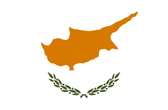
Call 0330 880 3600 Calls may be monitored or recorded. Opening Times.
- TRAVEL INSURANCE
- COVID-19 COVER
- More Options
- Help & Advice
- Existing Customers

Call 0330 880 3600 Calls may be monitored or recorded. Opening Times.

Need help?
UK Customer Services0330 880 3600*
Open Monday to Friday 9:00am to 6pm, Saturday 8:30am to 4pm and closed Sundays.
*Calls are recorded for training and quality purposes.

Official name: Republic of Cyprus
Capital city: Nicosia
Official language: Greek, Turkish, English
Population: Around 1.3 million
Currency: Euro (EUR)
Time zone: GMT+2
Driving side: Left
Climate: Mediterranean climate with hot, dry summers and mild, wet winters; coastal regions are warmer year-round, while mountain areas can see snow in winter
Cyprus is a Mediterranean island nation with a rich blend of European and Middle Eastern influences. Famous for its beaches, ancient ruins, and traditional villages, the island also reflects its complex political situation, divided between the Republic of Cyprus in the south and the Turkish-controlled north. Tourism is a key industry, with visitors drawn to resorts like Paphos, Ayia Napa, and Limassol, as well as cultural treasures such as Byzantine churches, Roman mosaics, and Crusader castles.
Cyprus is the third-largest island in the Mediterranean, located south of Turkey and west of Syria and Lebanon. The island features coastal plains, central lowlands, and the Troodos Mountains, which provide cooler retreats in summer and opportunities for winter sports. Natural hazards are rare, though Cyprus is in a seismically active region and experiences occasional earthquakes.
International flights arrive at Larnaca and Paphos airports in the south, while Ercan Airport in the north is only accessible via Turkey. Public transport mainly consists of intercity and local buses, with limited rail options. Car hire is popular and straightforward, though driving is on the left. Coastal resorts cater heavily to tourists, while inland areas offer cultural experiences and traditional hospitality. Ferries link Cyprus to Greece and Turkey, though services can be seasonal.
Cyprus is an EU member state. UK nationals and most visitors from the EU, North America, and other countries can enter visa-free for up to 90 days in any 180-day period. Longer stays require a residence permit. The Republic of Cyprus maintains embassies worldwide, and the British High Commission is located in Nicosia. Entry to the north via ports or airports not under the control of the Republic of Cyprus is considered illegal under Cypriot law, although in practice tourists frequently cross the Green Line between north and south.
The euro is the official currency. ATMs are widespread and credit cards are widely accepted in shops, hotels, and restaurants. Banking hours are typically Monday to Friday. Currency exchange is available at banks, bureaux de change, and larger hotels. While the cost of living is higher in resort areas, visitors can find good value in local tavernas and smaller towns.
Healthcare in Cyprus is of a high standard, with modern hospitals and clinics in major towns. The national health system covers residents, but visitors will need travel insurance to access medical care. Pharmacies are common and well stocked, though prescription requirements can differ from those in the UK. Tap water is generally safe to drink, though bottled water is preferred by many. Sunburn, dehydration, and heatstroke are the main health risks in summer, while mosquito-borne illness is rare.